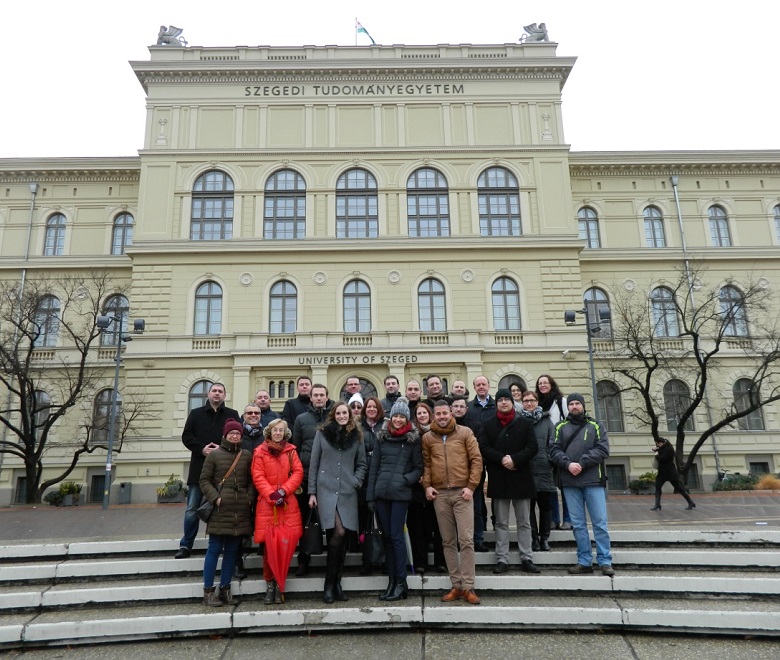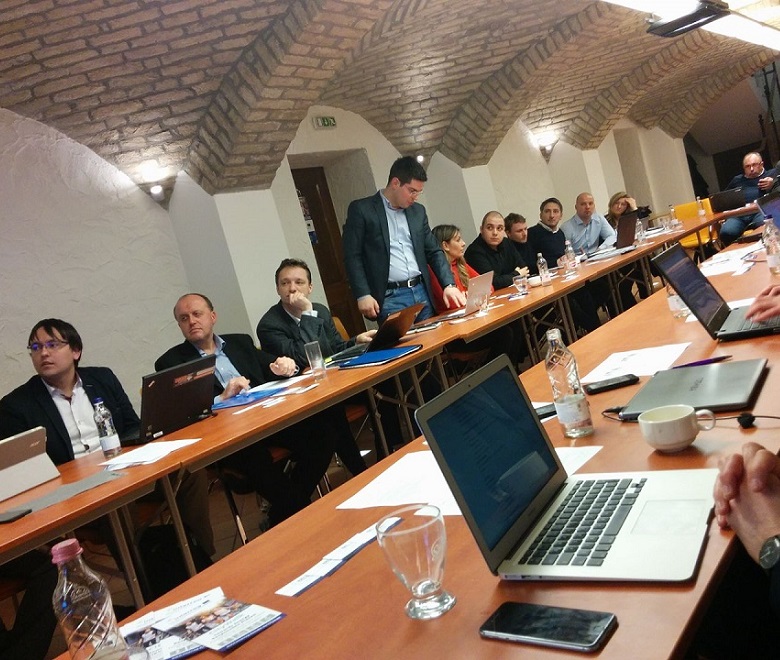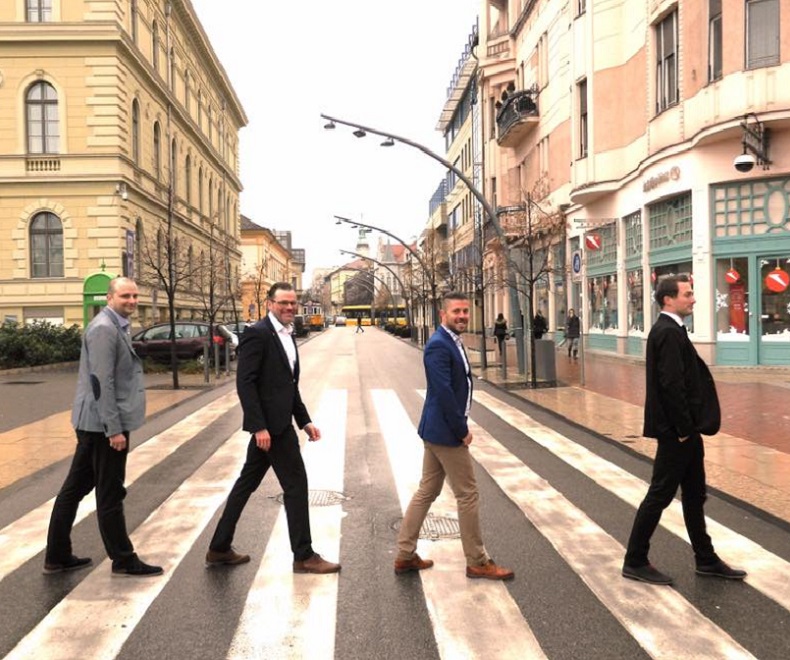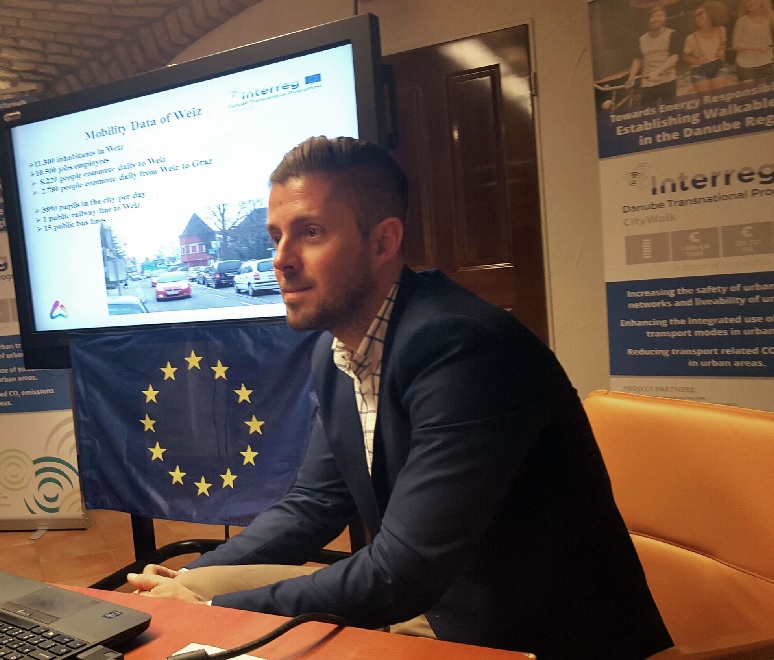|
|
| |
| |
 |
CITYWALK PROJECT STREAMING TOWARDS POSITIVE EFFECTS OF WAKING FOR MORE LIVABLE CITIES
|
| |
 |
| |
|
17 partners from Slovenia, Hungary, Slovakia, Croatia, Romania, Bulgaria, Czech Republic, Austria, and Serbia started working on the CityWalk project – “Towards energy responsible places: Establishing walkable cities in the Danube Region”. The financial support of more than 2,2 million € for cooperation on establishing walkable cities in the Danube Region was approved within the Interreg Danube Transnational Programme.
CityWalk project helps cities in the Danube Region to reduce emissions, noise and to become safer, better places to live, by increasing the role of more sustainable forms of mobility in the urban transport mix, especially active transport forms – like walking and biking. To do so the main focus of project is to improve the key conditions of walkability.
Start date: 01-12-2016
End date: 31-05-2019
Budget: 2.229.590,5 €
- ERDF Contribution: 1.669.430,16 €
- IPA Contribution: 225.721,75 €
Priority: Better connected and energy responsible Danube region.
Specific objective: Support environmentally-friendly and safe transport systems and balanced accessibility of urban and rural areas.
Follow the CityWalk project on social media:
 
dtp.interreg-danube.eu/citywalk
|
|
| |
 |
project kick-off meeting in szeged
|
| |
 |
|
The first important public event was the kick-off meeting, which took place between 7th-8th February 2017 in Szeged, hosted by First Hungarian Responsible Innovation Association (FHRIA). The participants of the meeting learned good practices and measuring tools of walkability and old-new trends in urban mobility. It was also discussed how the sustainable urban mobility actions like cycling are approached in Szeged.
Ana Leganel, project officer from JS of DTP, has shown her interest and support towards DTP by attending the CityWalk project kick-off meeting.
Read more...
|
|
| |
 |
WHo are we? - introduction of citywalk partnership
|
| |
 |
|
The CityWalk consortium covers an extensive part of the Danube area. The cooperation of 17 partners from 9 countries enables the creation of common practices and methodologies in the field of sustainable urban mobility and transport. Project CityWalk relies on a balanced group of local, regional and national partners (public and academic) – including medium-sized cities, development agencies, research organizations and a chamber of commerce and industry – all responsible for training development and delivery, as well as awareness-raising.
Read more...
|
|
| |
 |
walkable city - old/new trend in urban mobility
|
| |
 |
|
Béla Kézy, urban development expert:
"If someone would ask people living in cities what’s the number one thing they would improve in their city, many would definitely desire quicker moving around and less congestions.What if I say that in order to achieve that and to improve the quality of life in cities we need narrower roads, less lanes, less and more expensive parking places and traffic lights favouring pedestrians and cyclists? Today more and more cites ask the million dollar question: do we want to create ideal conditions for cars, or for people?"
Read more...
|
|
| |
 |
INTERVIEW WITH DR. MIKLÓS LUKOVICS - THE IMPORTANCE OF SUPPORT FOR THE DEVELOPEMENT OF WALKABLE CITIES
|
| |
 |
|
Dr. Miklós Ƚukovics, a lead expert of the FHRIA and also one of the inventors and developers of the CityWalk project, talked about the importance of support given to the development of walkable cities:
"Walkability as a mean of urban development is a special border area of the concept of RRI, which I find extremely important today and in the future. Nowadays cities are key actors in innovation, and urban development has become a crucial element of growth. However, it is getting more noticeable that in bigger cities the so-called disadvantages of urbanization shadow their impacts more strongly."
Read more...
|
|
|
|
|
| |
|
If you have received this newsletter, you have been included on one or more of the Danube Transnational Programme/projects postal mailing lists. We are committed to respect and protect the privacy of personal data collected. We regard your personal data as confidential information and will never communicate it to third parties. Your personal data are used mainly for the express purpose of receiving the newsletter. Your mailing details may also be used by the DTP and its projects for information and dissemination purposes strictly related to the programme and its projects. If you prefer not to receive more of this newsletter and your data not to be used for dissemination purposes, you can unsubscribe by sending a reply email.
|
|
|
|
|
|
